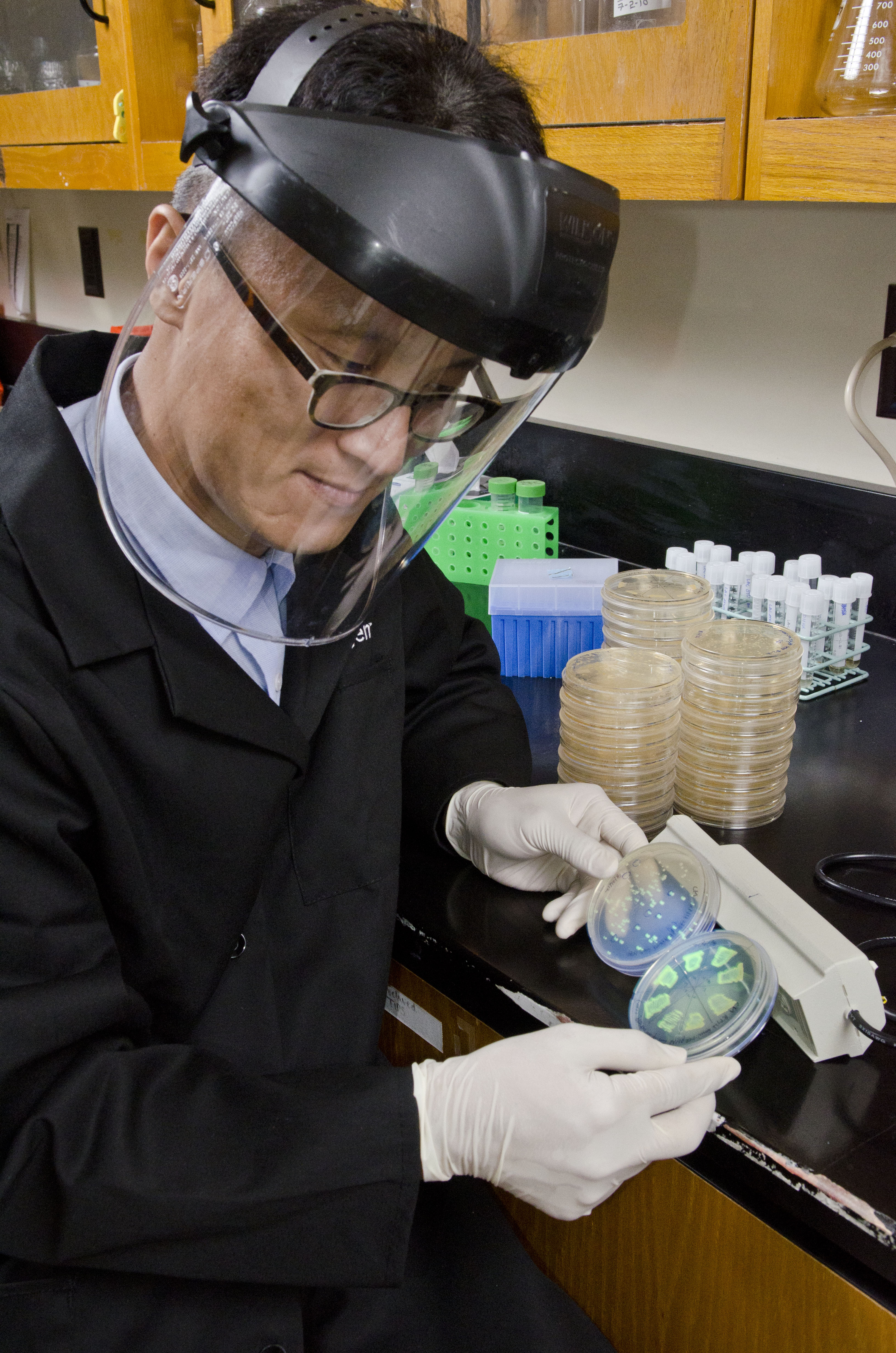Contact: Karen Templeton

Photo by: Tom Thompson
STARKVILLE, Miss.--Mississippi State University has been awarded a $10 million grant for five years of support from the National Institutes of Health to further research focusing on diseases that affect animal and human health.
NIH's Centers of Biomedical Research Excellence, or COBRE, provides competitive grants in support of multidisciplinary centers that strengthen institutional biomedical research capacity. MSU researchers started the planning process for competing for the grant in 2010. The research will be conducted among three core centers at MSU: the College of Veterinary Medicine, the Institute of Genomics, Biocomputing and Biotechnology, and the Institute for Imaging and Analytical Technologies. The MSU-CVM will administer the grant and research activities.
"It is an extremely competitive process," said Stephen Pruett, MSU-CVM's head of basic sciences and principal investigator on the COBRE grant. "Most of the applicants are human medical colleges, so we were in the minority as a veterinary college. We have great leadership and a talented group of researchers that helped us achieve this."
The unique nature of the grant establishes a mentoring program for a core group of researchers. The MSU researchers in this group include Janet Donaldson, associate professor in biological sciences; Mariola Edelmann, assistant research professor with the Institute of Genomics, Biocomputing and Biotechnology; Bindu Nanduri and Keun Seok Seo, both MSU-CVM assistant professors in basic sciences; and Henry Wan, an MSU-CVM associate professor. Over the course of the five-year grant, the researchers will work on projects that promote a greater understanding of animal and human health. The success of the grant will be measured by the researchers' ability to get additional NIH-funded grants to further research in infectious diseases that impact both animal and human health.
"Dr. Seo is leading the way in Staphylococcus aureus, or staph, research. What he's studying is leading to vaccines that could protect cattle and humans from dangerous staph infections." Pruett said. "Dr. Donaldson is providing important research on how listeria behaves in the gall bladder. Her discoveries are paving the way for new methods to control or prevent dangerous listeria outbreaks."
The researchers also will work collaboratively to design new infectious disease research projects and compete for further NIH funding as a team.
"Mississippi State has a tremendous amount of expertise in infectious disease," said Greg Bohach, vice president for MSU's Division of Agriculture, Forestry, and Veterinary Medicine. "We are honored to have NIH recognize this and provide the funding and the trust to take our research to the next level. The talent and focus is here, and we will continue to provide research that protects the safety of animals, humans, and the food supply."
Research reported in this publication was supported by the National Institute of General Medical Sciences of the National Institutes of Health under Award Number P20GM103646. The content is solely the responsibility of the authors and does not necessarily represent the official views of the National Institutes of Health.
For more information on NIH COBRE grants, visit http://www.nigms.nih.gov/Training/IDeA/COBRE.htm.